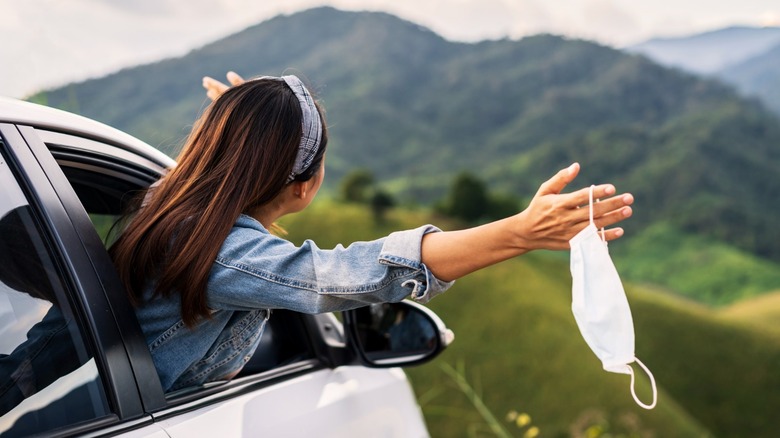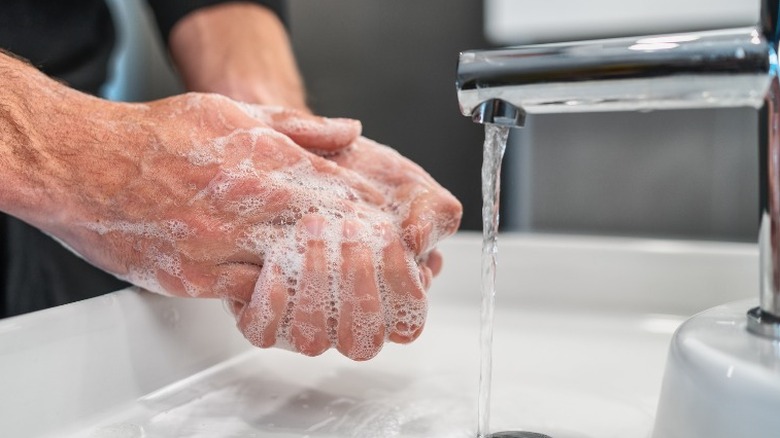How To Travel Safely Now That Masks Are Not Mandatory
The temperature is warm, you have dream vacations you need to tick off your bucket list, you've been stuck at home for two years due to the pandemic — you are ready to travel! And the good news is that it's getting easier to travel compared to the past couple of years. In addition, travel began to feel more normalized when a judge ruled against the travel mask mandate in April, meaning airlines, airports, and other mass transit entities could choose whether or not to support mask rules (via Centers for Disease Control and Prevention).
However, you should still keep in mind ways to travel safely, especially now that more people around you may be maskless.
For one, the experts at the Centers for Disease Control and Prevention (CDC) advise if you have COVID-19 symptoms, do not travel, even if you are vaccinated or have recovered from COVID-19 in the past three months. If you have come in close contact with someone who tests positive for COVID-19 and are advised to quarantine, get tested after at least five days and wait for a negative result, and then travel only if you don't exhibit any symptoms (per CDC).
Practical tips for safe travels
Despite the loosened mask rules, wearing a mask is still a good practice to maintain while traveling, given the pandemic is not entirely behind us yet (per CDC). You can also take other precautions to help you stay healthy while on the road or in the air.
The most important step you can take is to get fully vaccinated and boosted, Dr. Thomas Lamarre, an infectious disease specialist at The Christ Hospital, tells WKRC. Dr. Lamarre adds that vaccination remains, unequivocally, the best way to stay protected against the coronavirus. Whenever you have the opportunity, sit near open windows to take advantage of air circulation.
The experts at the Mayo Clinic also advise, if you are not fully vaccinated, to keep six feet between yourself and others while indoors. Whether you are vaccinated or not, it would be a good idea to avoid crowds and indoor spaces that don't have good circulation. In addition, wash your hands often, especially before eating and after coughing or sneezing, and avoid touching commonly used surfaces when possible. Also, refrain from touching your face.
In tight situations like a plane or crowded public transit, you should wear a mask if you are unvaccinated. Even if you are vaccinated, it would still be a good idea to wear a mask for additional peace of mind. And, of course, don't forget to enjoy your trip!

